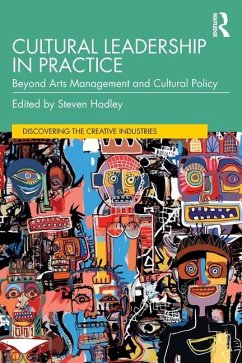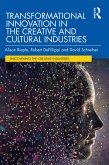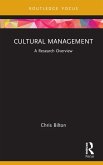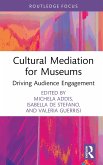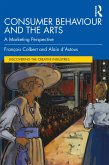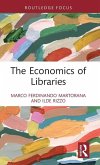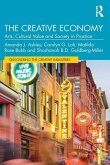What do cultural leaders really think about the problems they, and the arts and cultural sector, face?
This book brings global leaders in the cultural field into dialogue with academics and experts to offer profound insight and perspectives on the complex issues the cultural sector faces in a rapidly accelerating and destabilising twenty-first century context.
The book engages directly with leaders in the arts and cultural sector, bridging the gap between academia, policy and practice. Each chapter sheds new light on national cultural policy contexts, offering different perspectives on arts subsidy, audiences, the cultural workforce, heritage, artform development and how cultural leadership functions in a fast-changing local, national and international context. Interviews are conducted by academics and experts with significant knowledge and understanding of the arts management and cultural policy field, who ask critical and probing questions. Featuring interviews with an impressively international range of senior figures from the cultural sector, from the Royal Opera House, BMW, Bloomberg and Onassis Foundation and covering countries including the UK, Germany, Chile, Singapore, Greece, USA, Serbia and Ireland, the book gives a truly global overview of cultural leadership from leaders who are open to question, critique and challenge. Each chapter offers a unique and fascinating insight into the mind of a leader in their field, with their experience ranging from huge participatory events featuring tens of thousands of people to the visual arts, opera, the Turner Prize and the #blacklivesmatter movement.
This book will be essential reading for reflective cultural leaders around the world, as well as a useful resource for students and scholars involved with arts and cultural management and policy.
This book brings global leaders in the cultural field into dialogue with academics and experts to offer profound insight and perspectives on the complex issues the cultural sector faces in a rapidly accelerating and destabilising twenty-first century context.
The book engages directly with leaders in the arts and cultural sector, bridging the gap between academia, policy and practice. Each chapter sheds new light on national cultural policy contexts, offering different perspectives on arts subsidy, audiences, the cultural workforce, heritage, artform development and how cultural leadership functions in a fast-changing local, national and international context. Interviews are conducted by academics and experts with significant knowledge and understanding of the arts management and cultural policy field, who ask critical and probing questions. Featuring interviews with an impressively international range of senior figures from the cultural sector, from the Royal Opera House, BMW, Bloomberg and Onassis Foundation and covering countries including the UK, Germany, Chile, Singapore, Greece, USA, Serbia and Ireland, the book gives a truly global overview of cultural leadership from leaders who are open to question, critique and challenge. Each chapter offers a unique and fascinating insight into the mind of a leader in their field, with their experience ranging from huge participatory events featuring tens of thousands of people to the visual arts, opera, the Turner Prize and the #blacklivesmatter movement.
This book will be essential reading for reflective cultural leaders around the world, as well as a useful resource for students and scholars involved with arts and cultural management and policy.
"This fascinating book provides a vital bridge between both arts management and cultural policy, and between academics, artists, practitioners and policymakers. With conversations spanning the globe, and addressing a range of vital contemporary issues, Cultural Leadership in Practice is an essential addition to the field and should be read by anyone interested in how cultural leadership works in the real world." Ben Walmsley, University of Leeds, UK
"This excellent collection is important because it reflects the voices of practitioners from the field. It includes different artforms and cultural sectors, as well as practitioners in different nations, so its breadth is extensive. It is a timely collection therefore that every student of arts and cultural leadership should acquire." Jo Caust, University of Melbourne, Australia
"This excellent collection is important because it reflects the voices of practitioners from the field. It includes different artforms and cultural sectors, as well as practitioners in different nations, so its breadth is extensive. It is a timely collection therefore that every student of arts and cultural leadership should acquire." Jo Caust, University of Melbourne, Australia

